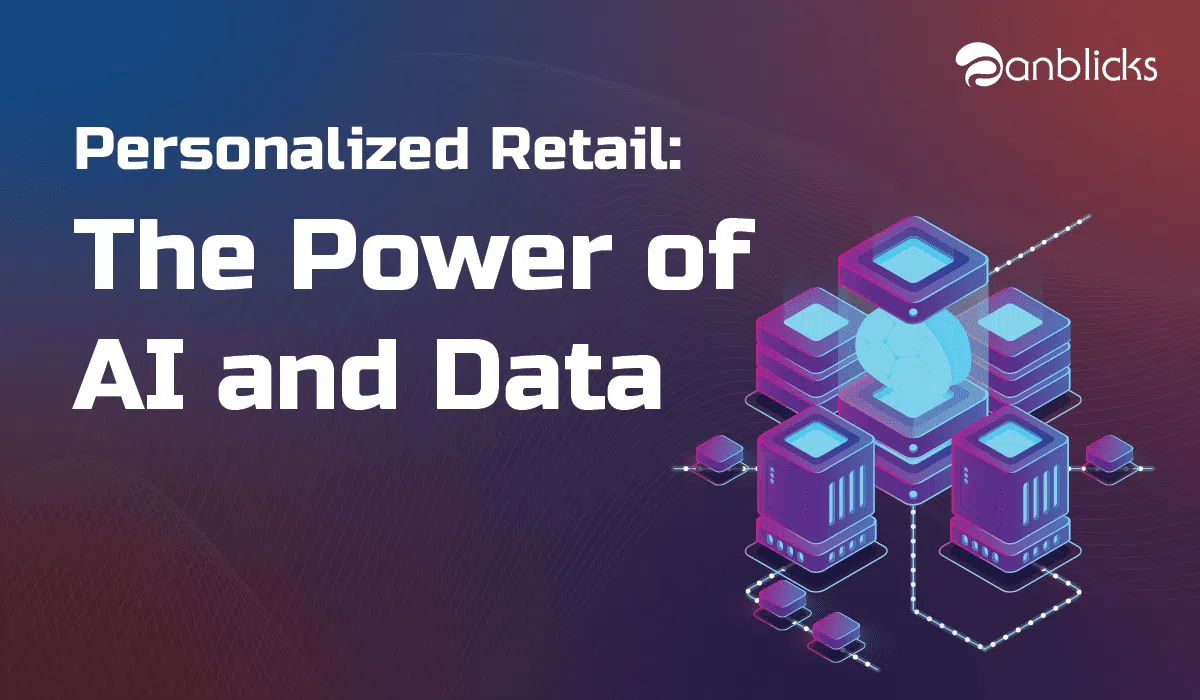
AI and Data Analytics: Transforming Retail Industry with Personalized Customer Experience
TL;DR
- AI and data analytics reshape retail with deeper customer insights and behavior tracking.
- Personalized experiences arise from tailored recommendations and targeted marketing.
- Retailers use advanced analytics to optimize inventory and enhance engagement.
Artificial Intelligence and data analytics solutions have been the driving force behind the growth of various industries. Manufacturing, healthcare, finance, and most importantly, the retail sector are business verticals leveraging these innovative technologies’ potential.
Among the various industries, the retail sector is massively implementing AI and data analytics solutions. The industry is witnessing this accelerated growth in implementing these technologies due to reduced customer churn, improvement of customer retention rate, and, most importantly, to offer a better customer experience.
Retailers across the globe have now understood that customer insights can not just add profit to their business, but they can also help them add value to their business in terms of customer satisfaction, higher retention, and improved customer acquisition. As a result, the retailers implement technologies and services such as AI, advanced data analytics, and machine learning to their businesses to collect, process, and visualize data to generate actionable insights.
According to a report by Research and Market, the global retail analytics market is projected to grow with a 19.4% CAGR. The report also states that the retail analytics market shall reach a value of US$ 10.4 billion by the end of 2023.
Now that the rate at which retailers are implementing technologies like data analytics and artificial intelligence into their business is known let’s figure out the impact of these technologies in developing actionable customer insights.
1. Strategy
The first and foremost step to generate the insight is to develop an effective strategy to collect the data from sources such as comments, reviews, shopping patterns, and products purchased. It is highly recommended to create a roadmap that will allow the retailers to collect, process, and use the data to develop personalized experiences. With the help of data analytics assessment and strategy services, retailers can develop a plan of action that shall help them attract new customers while retaining the existing ones.
2. Marketing
To improve the reach of the business, effective marketing plans are a mandatory asset for any retailer. Data analytics solutions such as customer segmentation, data mining, and customer value analysis allow retailers to understand their customers’ preferences, frequent purchases, and purchases. This will enable them to provide preference-based offers and schemes, improving the customers’ overall shopping experience.
3. Customer Relationship
Retaining customers purely depends on the relationship a retailer has with its visitors. Providing appealing offers and personalized discounts may be one of the parameters in strengthening the relationship. However, the majority of customer relationships happen with after-sales services. How well a retailer provides maintenance of the product? And, How quickly the customer receives support from the retailer? Nevertheless, the major challenge associated with customer relationships is the retailers’ lack of maintenance and support. As a result, the retailer has to face customer complaints, churns, and loss of prospects.
Technologies such as AI-powered chatbots allow the businesses to mend the gap between customers and the retailer. With embedded technologies such as natural language processing and machine learning, AI-powered chatbots provide an interactive atmosphere to the customer, which helps them to get suitable solutions to their problems.
Now let’s look at the role of artificial intelligence and data analytics in the enhancement of customer experience.
According to a survey conducted by Salesforce, 80% of customers believe that company experience is as essential to them as a brand’s products or services. Over the period, capturing, analyzing, and processing the data has become a daunting challenge for retailers. However, with the digitization of the retail sector, the incorporation of smart devices has increased exponentially. These devices can leverage the technologies such as AI and data analytics in the following ways:
1. Price Optimization
Price optimization is one of the major concerns that every retailer has to consider when delivering a better customer experience. The reason being, that a customer will always opt for options that provide a reasonable price. This is where advanced data analytics services such as data strategy and assessment come in handy. These services offer a practical roadmap that can help retailers to provide a personalized experience to their customers.
2. Personalized Marketing
Attracting customers with unique and personalized offers is also one of the significant factors that require data analytics solutions in the retail industry. Retailers know that every customer has different preferences, and developing an offer matching their offer is the major challenge for retailers today. With the help of cutting technologies such as AI, retailers can understand the preferences and requirements of the customers.
3. Customer Analytics
Optimal customer experience is achieved when a retailer remembers its customers and offers them the attention they seek. AI-enabled customer analytics tools allow retailers to access larger and complex data spaces and unveil new business opportunities. As a result, the retailers can focus more on prioritizing these insights instead of hammering away at the underlying data.
Moreover, the AI-powered customer analytics tools can pinpoint every relationship data that retailer has collected. With the help of this data, the tools can help the retailers to predict the future behavior of their customers allowing them to create a personalized marketing strategy improving the customer experience and customer retention rate.
Author’s Pick
The retail landscape has changed entirely over the period. The implementation of digital technologies such as IoT, artificial intelligence, augmented reality, and virtual reality allows retailers to understand the market dynamics and how these technologies can help them in gaining a competitive advantage over their rivals.
Acquiring actionable customer insights can help the retail business to grow exponentially in the coming days. Moreover, a strategic plan of action to acquire these insights can help businesses to smoothen their operations. Connect with us and tell us your business vision with data analytics.







